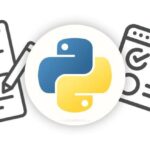Uncover How Human Psychology Influences Financial Selections and Market Dynamics
What you’ll be taught
Perceive basic financial ideas and theories
Grasp the fundamentals of psychological theories associated to economics
Discover how cognitive biases affect financial selections
Analyze the influence of feelings on shopper conduct
Look at the function of social influences on market dynamics
Apply psychological insights to foretell market tendencies
Develop abilities to craft efficient advertising and marketing methods
Improve private monetary decision-making talents
Why take this course?
Behavioral economics bridges the hole between conventional financial theories and the complexities of human conduct, offering profound insights into how folks make selections in real-world conditions. This course presents a complete introduction to the sector of behavioral economics, equipping college students with the information to know and apply these ideas in numerous financial, enterprise, and coverage contexts.
The course begins by defining what behavioral economics is and exploring its significance in understanding financial decision-making. You’ll find out how behavioral economics challenges conventional financial theories, which frequently assume rational conduct, by incorporating psychological insights that reveal how folks truly make selections. This foundational information is important for anybody interested by understanding the true drivers of financial conduct and enhancing decision-making processes.
Subsequent, the course delves into key ideas in behavioral economics, equivalent to heuristics, biases, and the function of feelings in decision-making. You’ll discover how these psychological components affect financial decisions, typically resulting in deviations from rational conduct. By understanding these ideas, you’ll achieve sensible insights into how folks make selections in numerous contexts, together with private finance, enterprise methods, and public coverage design.
A vital a part of the course is the comparability between conventional financial theories and behavioral economics. You’ll research how conventional theories typically assume that people act of their greatest curiosity with full data, whereas behavioral economics takes under consideration the restrictions of human cognition and the affect of social and emotional components. This part will assist you admire the strengths and limitations of each approaches and perceive how integrating behavioral insights can result in more practical outcomes in enterprise and coverage.
The course additionally explores the psychological components that drive financial selections, with a selected deal with heuristics and biases. You’ll study frequent cognitive shortcuts folks use to make selections and the way these can result in systematic errors. Understanding these biases is essential for figuring out potential pitfalls in decision-making and creating methods to mitigate their results.
The function of feelings in decision-making is one other key space coated within the course. You’ll research how feelings equivalent to worry, optimism, and remorse affect financial decisions, typically in ways in which conventional financial fashions can’t predict. This part will give you a deeper understanding of how feelings form monetary selections, shopper conduct, and coverage responses.
Nudges and behavioral interventions are additionally an necessary focus of the course. You’ll discover how refined adjustments within the setting or presentation of decisions can considerably affect conduct, main to raised outcomes in areas equivalent to well being, financial savings, and sustainability. This part will equip you with sensible instruments for designing and implementing behavioral interventions that promote constructive financial and social outcomes.
All through the course, you’ll develop a complete understanding of the ideas and functions of behavioral economics. You’ll achieve the power to investigate decision-making processes, establish behavioral patterns, and apply behavioral insights to enhance outcomes in enterprise, coverage, and on a regular basis life.
By the tip of the course, you should have a deep understanding of how psychological components affect financial selections and how you can leverage these insights to reinforce decision-making. This course is good for college students, professionals, and anybody interested by understanding the complexities of human conduct in financial contexts and making use of behavioral economics to real-world challenges.
The submit Behavioral Economics: Merging Psychology & Economics appeared first on destinforeverything.com.
Please Wait 10 Sec After Clicking the "Enroll For Free" button.







